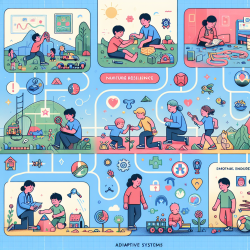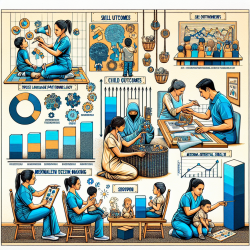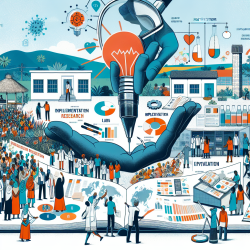In the ever-evolving field of child development, the concept of resilience has become a cornerstone for understanding how children adapt to challenges. The research article "Resilience in Children: Developmental Perspectives" by Ann S. Masten and Andrew J. Barnes provides invaluable insights into how resilience can be nurtured through various systems and interactions.
The Essence of Resilience
Resilience is defined as the capacity of a system—be it a person, family, or community—to adapt successfully to challenges that threaten its function or future development. This capacity is not static; it is dynamic and influenced by myriad interactions across biological, psychological, and sociocultural systems.
Key Findings from Resilience Science
- Exposure Dose: The severity and accumulation of adversities significantly impact a child's development. However, some children demonstrate remarkable adaptive success despite high levels of risk.
- Promotive and Protective Factors: Factors such as supportive relationships and effective parenting play crucial roles in fostering resilience. These factors are part of what Masten refers to as the "shortlist" of fundamental adaptive systems.
- Timing Matters: The timing of adversities and interventions can significantly affect outcomes. Early childhood is a critical period where interventions can have lasting impacts.
Implications for Practitioners
Pediatric practitioners are uniquely positioned to apply resilience science in their work. Here are some strategies to consider:
Risk-Focused Interventions
Reducing or mitigating risks is essential. This can include screening for maternal depression, preventing family violence, and ensuring safe environments for children.
Asset-Focused Promotive Interventions
Enhancing resources available to children and families can promote resilience. Programs like "Reach Out and Read," which provides books during pediatric visits, exemplify asset-focused strategies.
Protection-Focused Interventions
Nurturing adaptive systems such as parenting quality and social support networks can bolster resilience. Programs that improve parent-child relationships are particularly effective.
Nurturing Resilience through Pediatric Systems
Pediatric healthcare providers play a vital role in building resilience by integrating these strategies into routine care. Screening for both risks and strengths can help tailor interventions that support children's development.
Training Implications
The integration of resilience science into training programs for healthcare professionals is crucial. Emphasizing strengths-based approaches alongside traditional deficit models will better prepare practitioners to support children's holistic development.
The Path Forward
The field of resilience science continues to grow, offering new insights into how we can better support children's development through informed practice and policy. By embracing a transdisciplinary approach, practitioners can contribute significantly to nurturing resilient individuals who will positively impact their communities.
To read the original research paper, please follow this link: Resilience in Children: Developmental Perspectives.










